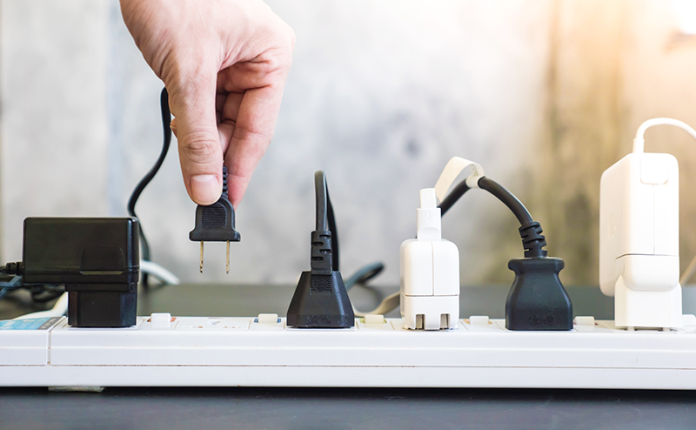Summer in Rockingham can be scorching, and as the temperature rises, so does the use of air conditioners, fans, and other energy-consuming appliances. This surge in electrical demand can lead to overloading your home’s electrical system, resulting in tripped circuit breakers or even electrical fires. Preventing electrical overloads during summer is essential to ensure the safety and efficiency of your home’s electrical system.
In this blog, we’ll guide you through some practical steps to prevent electrical overloads during the summer months.
What is an Electrical Overload?
An electrical overload occurs when more electricity is drawn from a circuit than it can safely handle. This often happens when multiple high-demand appliances, such as air conditioners, microwaves, and washing machines, are used simultaneously. The overload causes the circuit breaker to trip, cutting off electricity to prevent overheating and potential fire hazards.
1. Prioritize Energy-Efficient Appliances
Using energy-efficient appliances is one of the easiest ways to reduce the overall electrical load on your circuits. Devices like LED lights and energy-star-rated air conditioners consume less power than traditional alternatives, helping you avoid overloads while lowering your energy bills.
In hot summers, energy-efficient air conditioners are a must. Ensure that your air conditioning system is correctly sized for your home to avoid placing too much stress on your electrical circuits.
2. Distribute Your Electrical Load
Overloads typically occur when too many devices are plugged into the same circuit. To prevent this, distribute the use of electrical appliances across multiple outlets and circuits.
- Identify high-power appliances: Devices like air conditioners, refrigerators, and electric stoves should have their own dedicated circuits. This prevents overloading a single circuit with multiple power-hungry appliances.
- Use power strips wisely: While power strips can offer convenience, they should not be used to overload a single outlet. Avoid plugging several high-power devices into the same power strip.
3. Monitor Your Circuit Breakers
Your circuit breaker is designed to protect your home from electrical overloads by automatically shutting off the power when it detects excess current. Keeping an eye on your circuit breakers during high-use periods, like summer, can help you identify and address potential issues before they escalate.
- Know your breaker limits: Understand the capacity of your home’s circuits and avoid exceeding these limits. For example, a 15-amp circuit can typically handle around 1,800 watts. Exceeding this could result in a breaker trip.
- Check for frequent trips: If a particular breaker trips often, it could be a sign of an overloaded circuit. In such cases, it’s best to reduce the load on that circuit or consult a licensed electrician in Rockingham.
4. Upgrade Your Electrical Panel if Necessary
Older homes in Rockingham may have outdated electrical panels that can’t handle modern electrical demands. If you find that your circuits frequently trip even when not heavily loaded, it might be time to consider an electrical panel upgrade.
- Signs of an outdated panel: Frequent breaker trips, flickering lights, and warm outlets are all signs that your electrical system is struggling to meet your home’s needs. Upgrading your panel can help distribute the electrical load more efficiently and prevent overloads.
- Consult a licensed electrician: Before making any upgrades, it’s essential to get a professional opinion. A licensed electrician can assess your electrical system and recommend upgrades that ensure your home is safe and energy-efficient.
5. Schedule Regular Electrical Inspections
One of the most effective ways to prevent electrical overloads is to have a licensed electrician conduct regular inspections of your electrical system. They can identify potential problem areas, recommend upgrades, and ensure your system can handle the increased demand during summer.
- When to schedule an inspection: If you live in an older home, recently added new appliances, or are experiencing frequent breaker trips, it’s a good idea to schedule an inspection before summer kicks in.
6. Implement Smart Home Technology
Smart home systems can help manage your electricity usage more efficiently, reducing the risk of overloads. Devices like smart thermostats and smart plugs allow you to monitor and control your appliances remotely, ensuring that energy consumption stays within safe limits.
- Use smart thermostats: These devices can automatically adjust your home’s temperature based on your habits, preventing your air conditioner from running unnecessarily and overloading your circuits.
- Monitor energy use with smart plugs: Smart plugs provide real-time data on the energy consumption of individual devices. This helps you identify which appliances are using the most power and take action to balance the load.
Conclusion: Stay Safe This Summer in Rockingham
Electrical overloads can be a serious safety hazard, especially during Rockingham’s hot summer months when energy usage peaks. By following these tips—such as using energy-efficient appliances, distributing your electrical load, upgrading your panel if needed, and scheduling regular inspections—you can prevent overloads and keep your home safe and comfortable.
If you’re ever unsure about your home’s electrical capacity or experience frequent breaker trips, it’s always best to consult a licensed electrician. Don’t wait until an overload becomes a serious issue—get ahead of the problem and enjoy a worry-free summer in Rockingham!
For professional electrical services and advice on preventing overloads, contact your local electrician in Rockingham today!




